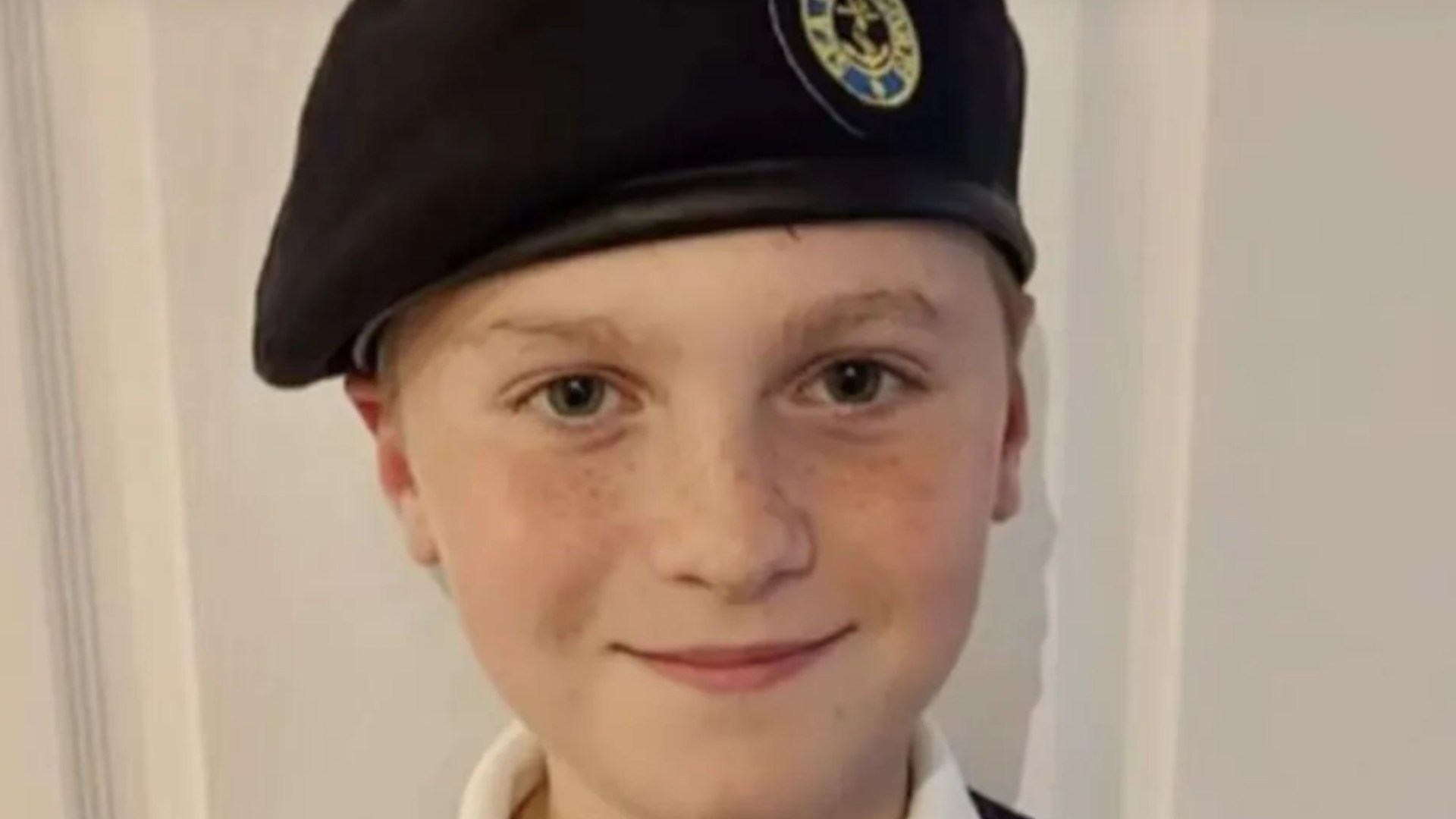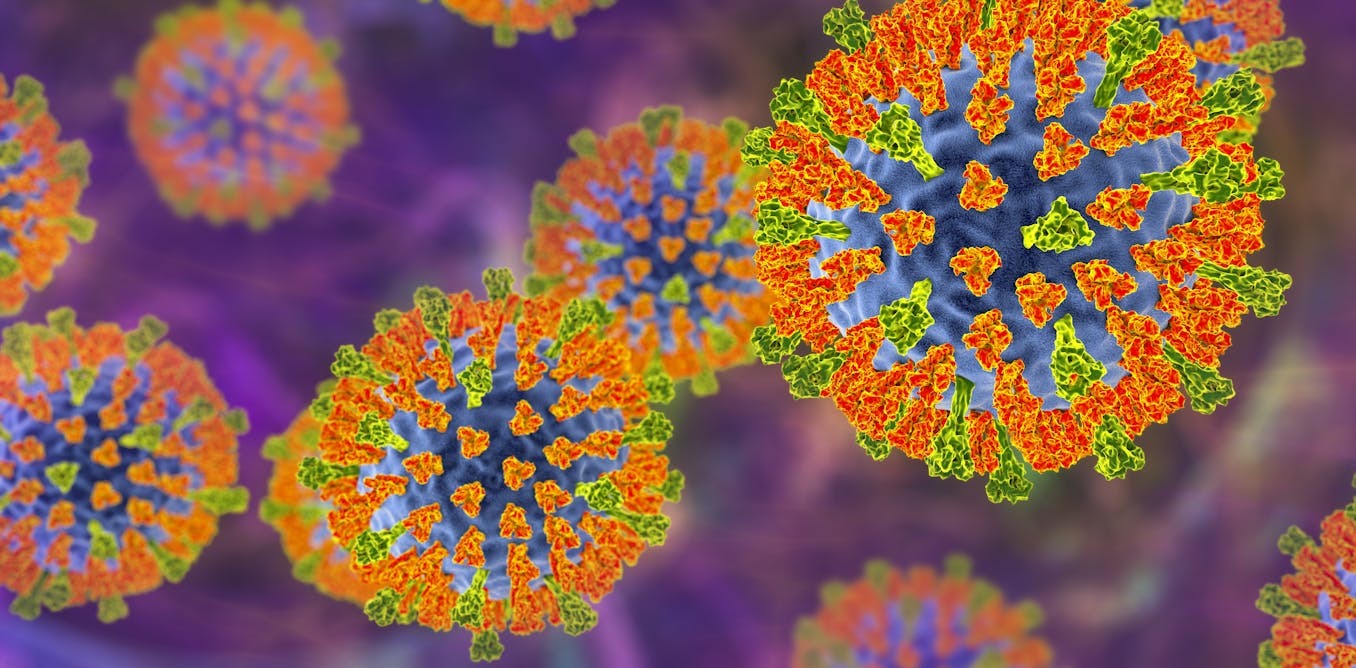A 13-YEAR-OLD boy died from a rare form of cancer that his parents initially mistook for hay fever.
Jake Swinscoe was suffering from a “stuffy nose and watery eyes” – common symptoms of seasonal allergies – so his mum offered him antihistamines.
17

17
But the teenager was later diagnosed with stage 3 alveolar rhabdomyosarcoma – a soft-tissue cancer that mostly affects teenagers and young adults.
Jake started receiving intensive chemotherapy, followed by proton beam therapy, which successfully shrank the tumour.
However, another scan showed that the cancer had spread to his spinal cord and fluid around his brain.
His mum Lynsey, 41, from Wiltshire, said: “When Jake found out there was nothing more the doctors could do, he dealt with it amazingly.
“He chose not to have any further treatment – and his consultant said he was the first teen who’d ever said that.
“I even caught him planning his own funeral. I am just so proud of him.
“If I’d been in his shoes, I don’t think I’d have handled it as calmly as he did.”
In June 2023, Lynsey, who works for the Ministry of Defence as a civil servant, noticed Jake was struggling with what she thought was hay fever.
“His symptoms were quite subtle,” she said.
“He had a stuffy nose and watering eyes, and because it was summertime, I figured it was hay fever.
“He hadn’t suffered with it before, so I gave him antihistamines, which helped.”
Lynsey wasn’t worried until Jake’s dad Adam, 42, whom she is separated from, returned from working away with the army in August.
“Adam is a warrant officer and when he saw Jake after being away for three weeks, he noticed the bridge of his nose looked a bit swollen,” she said.
“Because I’d been with Jake a lot, I hadn’t noticed the gradual change. – especially as he’d been otherwise well in himself.”
Adam took his son to the GP, who sent them straight to A&E.
At Salisbury Hospital, a CT scan concluded Jake had a mass inside his skull.
“It was 2.4in x 1.6in (6cm x 4cm) – the size of an egg – and pressing on his brain, which was what was causing the hay fever-like symptoms,” Lynsey said.
“Later, Jake remembered that on a school trip in July, he’d sneezed and felt a strange pressure change in his head, which would have been because of the mass.
“It was causing the swelling on his nose and was behind his sinus congestion.”
Nothing prepares you to outlive a child
Lynsey Swinscoe
Jake was transferred by ambulance to the Piam Brown Unit at University Hospital Southampton, where he stayed for two weeks for further tests.
Because of its location, the mass couldn’t be surgically removed, so Jake had emergency chemotherapy.
Tests led to the diagnosis of stage 3 alveolar rhabdomyosarcoma, an extremely rare and aggressive cancer that had quickly spread to his lymph nodes.
‘HE JUST WANTED TO LIVE HIS LIFE’
“We were told Jake had a 20 per cent chance of survival over the next five years and he was very keen to get on with treatment,” his mum said.
“He just wanted to live his life.
“His consultant said she’s never met such a determined kid so willing to have treatment.
“He’d have his bag packed and was ready to go each time.”
Alveolar rhabdomyosarcoma (ARMS) can occur anywhere in the body and symptoms depend on where the tumour is, its size, and whether it has spread to other areas of the body.
Jake, who was a sea cadet, started nine cycles of intensive chemotherapy, which saw him lose his hair.
He then spent six weeks at UCLH to receive proton beam therapy.
As well as treatment, Jake had multiple admissions for infections and blood transfusions.

17

17

17

17
What is alveolar rhabdomyosarcoma?
Alveolar rhabdomyosarcoma is a soft tissue sarcoma, usually found in teenagers and young adults that can occur anywhere in the body.
It’s often found in the arms and legs, but also in the head and neck area, the muscles around the spine, and the area between the genitals and the anus.
An average of 31 cases of ARMS are diagnosed in England every year and the main symptom is a lesion or swelling in the soft tissue of the body.
Other symptoms depend on its size and location, but can include:
- Hearing loss
- Loss of balance
- Bulging of the eyes
- Weakness, numbness or pain in the face
- Trouble swallowing
- Back pain
- Difficulty walking
- Loss of bowel or bladder control
- Constipation
- Abdominal pain, swelling or bloating
- Blood in the pee or poo
Treatment may involve surgery to remove the tumour, radiotherapy and chemotherapy.
Source: Sarcoma UK
“Jake was really sporty, a big fan of race car driving, and loved anything in the water, like kayaking and sailing,” Lynsey said.
“It was so sad to see him unwell and missing his favourite activities, but he was determined to get better.”
A routine MRI scan was booked for November 2023, and the results were exactly what the family were hoping for.
“The scan showed that the tumour had shrunk by 90 per cent and that Jake’s lymph nodes were free of cancer,” Lynsey said.
“We were all thrilled he’d responded so well to treatment.
“Adam and I felt really positive, like our son could actually survive this aggressive cancer.”
But in March 2024, another scan showed that although Jake’s tumour had gone, the cancer had spread to his spinal cord and fluid around his brain.
“We were all devastated,” his mum said.
“The plan had been for Jake to have maintenance chemo, so he could go back to school and resume a normal life, but it wasn’t to be.
“Jake’s response was, ‘That’s fine, what treatment can I have now?’, so the consultant had to explain it wasn’t something that could be cured.”

17

17

17

17
The following week, Jake suffered a massive seizure due to a swelling in his brain and was sedated to keep him stable.
“We had to make the decision to remove Jake’s ventilator and sedation if he didn’t respond within 48 hours,” Lynsey said.
“But in true Jake style, he woke the next day asking why we were all crying.
“We took him home and Adam arranged for Jake to ride in a Lotus supercar, which was a dream come true for him.
“Jake also really wanted to see his sister Ava catch a fish, because she hated fishing so much. Thankfully she caught one, which made his day.”
She added: “Sometimes I’d wake in the morning and find he’d climbed into Ava’s bed.
“The bond he had with his big sister was incredible, they were the best of friends and their close relationship helped give him normality.”
Lynsey was so impressed with how Jake dealt with his prognosis – and how he was even planning his funeral.
THE PERFECT END
“One day I caught Jake creating a word document with images – a pale blue coffin and pale blue flowers,” Lynsey said.
“He told me he wanted everyone to wear pale blue to his funeral and that he wanted it to be a celebration, more like a party.”
In April 2024, three weeks after Jake had come round from sedation, he took a turn for the worse.
“We were at a restaurant when he told me he didn’t feel well, so we went home,” Lynsey said.
“From there, his health declined and 11 days later, he died.
“Nothing prepares you to outlive a child. When I spoke to Jake about dying, he told me he was annoyed he hadn’t had a chance to live his life, but that he believed it would be a lot harder for us than for him.”
In May, Lynsey says Jake’s funeral was exactly how he’d planned it to be.
“After the celebrant had done her speech, she said: ‘Now who’s ready to party?’ and Happy by Pharrell Williams began to play,” she said.
“We all started dancing and his friends formed a line and did the conga down the aisle to his coffin and back, stopping to give it a hive-five or tap to say goodbye; I can’t think of the funeral without smiling.
“I’m so proud of Jake and the maturity he showed when accepting there was nothing more the doctors could do.
“He had so much life to live, and we miss him so much.”
Jake’s courage didn’t go unnoticed and charity Little Troopers, which supports military children whose parents serve in the British Armed Forces, awarded him Trooper of the Month in recognition of his bravery.

17

17

17

17

17

17

17




